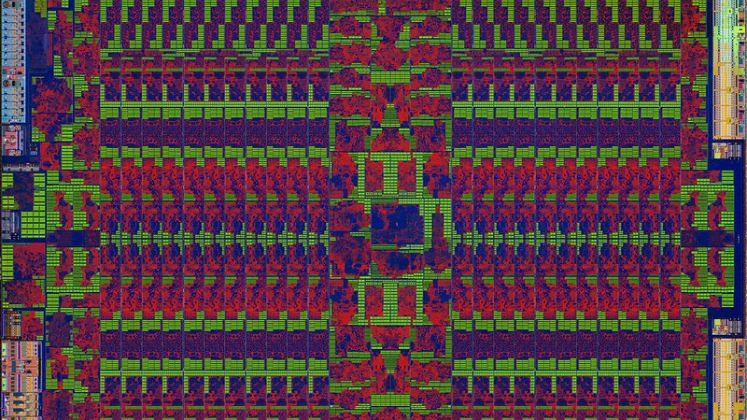Kaitlin Thaney argues the current momentum building for “no pays” academic publishing models and establishing the “reasonable costs” of publication, present opportunities to rebalance the inequities, costs, and power dynamics initially bred by the push towards Open Access “at any cost” over the past two decades.
The EU Council’s recent call for immediate and unrestricted access in publishing publicly funded research has sparked a series of reactions from commercial giants in the publishing industry. They claim that without further detail on who will pay for the cost of publishing as it currently stands, moves towards more equitable systems would “abolish” the current system. This is not the first time we’ve heard this trope.
Similar concerns from commercial publishers were heard following the US National Institute of Health’s 2007 mandate that federally funded research be made openly available one year after publication (a mandate that followed both the Canadian Institute for Health Research and the European Commission in moving towards open access policies and recommendations). In March 2008, PNAS convened a series of society, commercial, and open access publishers as well as other publishing representatives, funders, and open advocates at the National Academies in Washington, D.C. for their E-Journal Summit. The Great Hall echoed with now familiar fears and claims that more immediate access to research would cause publishers to go bust, completely disrupt their underlying revenue models, and forever change the publishing landscape for the worse.
For all the talk of how open was at odds with keeping both small and large publishers afloat, the path to Open Access has become big business
Back then, I was working to advance common use licensing practices for research at Creative Commons. The ‘us’ versus ‘them’ dynamic was especially loud and unhelpful, with commercial and society publishers outnumbering representatives from open initiatives almost 10 to 1, speaking out against public access for fear of disruptions to their financial bottom lines. The broader argument that taxpayer-funded research should be available, at no cost, to said taxpayers, was lost.
History has repeatedly shown the industry to be resilient in the face of change and fear of change is no reason to fear, slow, or otherwise avoid a much-needed recalibration of our systems of knowledge production and dissemination. If anything, now is the time for publishers to think about how they can support the underlying communities and build the infrastructures that bring profit to their businesses, and invest in their success.
For all the talk of how open was at odds with keeping both small and large publishers afloat, the path to Open Access has become big business, with benefits trailing behind for the communities producing – and funding through tax dollars – research and scholarship. Following the signing of the Budapest, Berlin, and Bethesda Open Access declarations in the early 2000s, progress has been made towards the vision of scholarship that’s “free to read” – but not “free” or even affordable to publish, with some arguing that the latter wasn’t the point.
There continues to be a tremendous amount of revenue being generated off of the move towards Open Access, but questions remain about the extractive nature of many of these business models, what constitutes “reasonable cost” for making publicly funded research available as intended, and who should bear that cost. Many of these questions centre around how to ensure equitable and inclusive access to publishing without creating undue barriers on the global research community through unsustainable pricing structures and “transformative” models that have proved anything but.
As we’ve seen over the past three decades with the growth in adoption of open source, there are avenues and ways to centre the communities that businesses rely on for their contributions and ensure they remain healthy, vibrant, and resourced
The recent EU Council conclusions are part of a wider succession of communiques and policies calling for a rebalancing of cost and access to further open science, including the recent G7 communique, the Nelson memo from the Office of Science and Technology Policy in the US, the UNESCO Recommendation on Open Science. They seek to explore more cost-effective and affordable avenues for scholarly publishing, further detailing the questions of cost and responsibility for those costs, which were arguably missing from previous mandates calling for free and open access to scientific research and scholarship.
As we’ve seen over the past three decades with the growth in adoption of open source, there are avenues and ways to centre the communities that businesses rely on for their contributions and ensure they remain healthy, vibrant, and resourced. We look to models such as Anaconda Dividend, in which Anaconda has committed to re-investing 1% of their annual revenue back into the open source communities on whom they depend, as well as GitHub Sponsors, Open Source Collective, Tidelift and more. There are also examples from public utilities funding, which rely on a mix of public funding from governments and philanthropy as well as service providers, private companies, and NGOs.
it’s time to require enterprises that profit from open knowledge and open research activities to actively invest in and share profits with the communities and infrastructure they depend on
At Invest in Open Infrastructure (IOI) we are working to research models and structures that can shift the dynamic from extractive practices that place unreasonable costs on researchers and institutions, lock up knowledge, and privatise data, towards one that calls for more accountability and reinvestment to advance a healthy and vibrant open research ecosystem. Pragmatically, we need more resolute and clear terms for what “reasonable cost” means to achieve these aims, and ideally for publishers to dedicate a portion of their profits back into the communities that fund their bottom line in ways that empower and enable more equitable access and participation in scholarship globally. We are working towards those aims with upcoming research on “reasonable costs” for publicly funded research, as well as soliciting contributions to our 2024 Fund to support communities of researchers and institutional leaders to further the adoption and implementation of infrastructure and services necessary to achieve and advance open science.
It’s time to shift the dialogue from how to maintain the structures of the past to how to build sustainable and equitable futures. And it’s time to require enterprises that profit from open knowledge and open research activities to actively invest in and share profits with the communities and infrastructure they depend on.
The content generated on this blog is for information purposes only. This Article gives the views and opinions of the authors and does not reflect the views and opinions of the Impact of Social Science blog (the blog), nor of the London School of Economics and Political Science. Please review our comments policy if you have any concerns on posting a comment below.
Image Credit: Adapted from Markus Spiske via Unsplash.








Open Access publishing is a business. It cannot improve the Science.
It should be banned worldwide. No APC or page charge should be allowed.